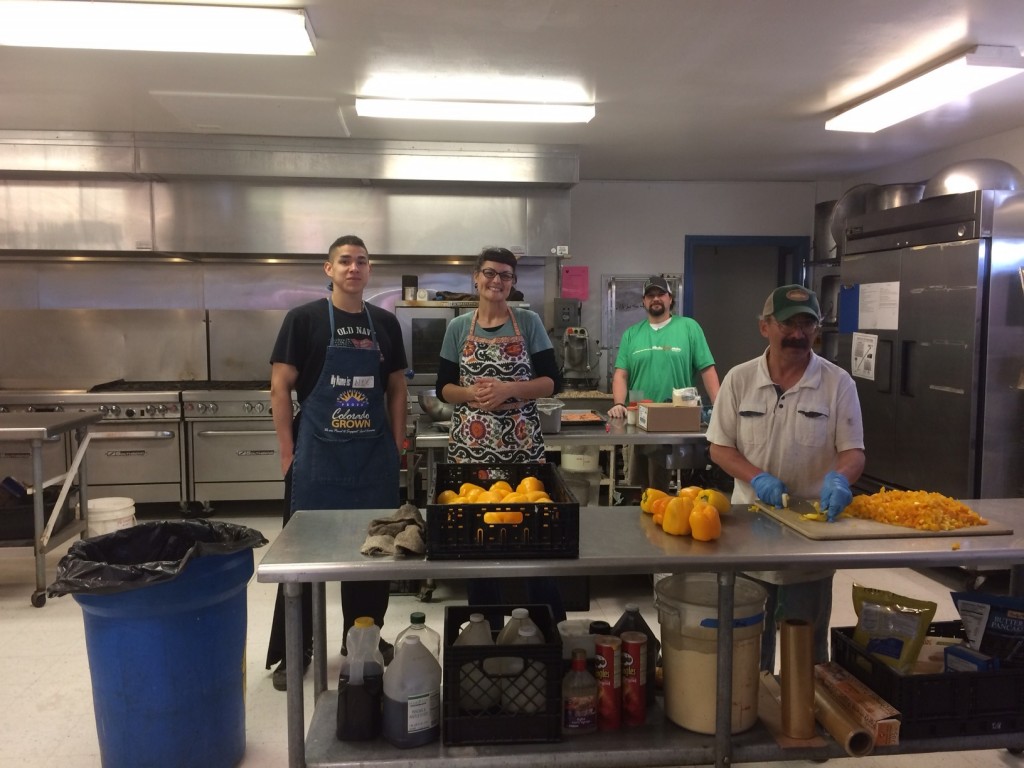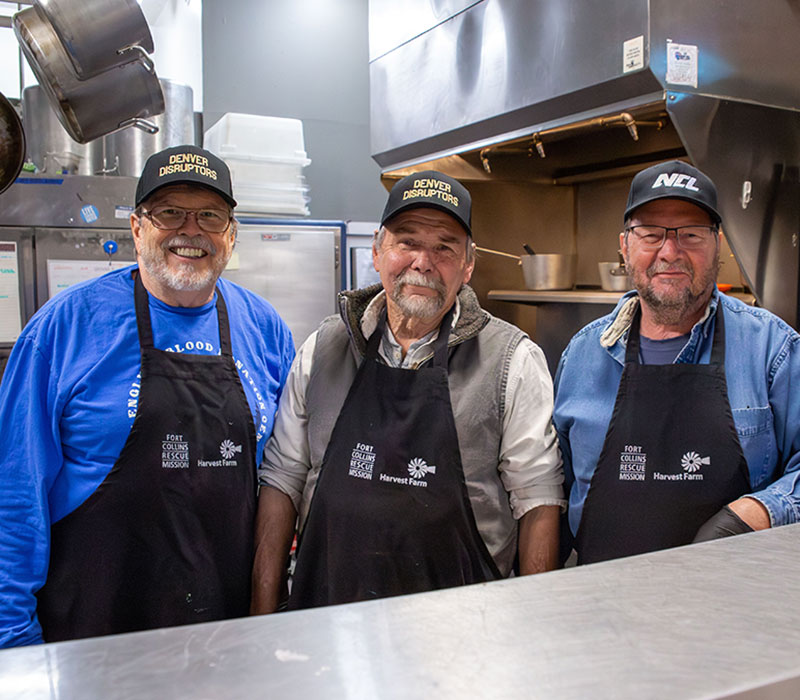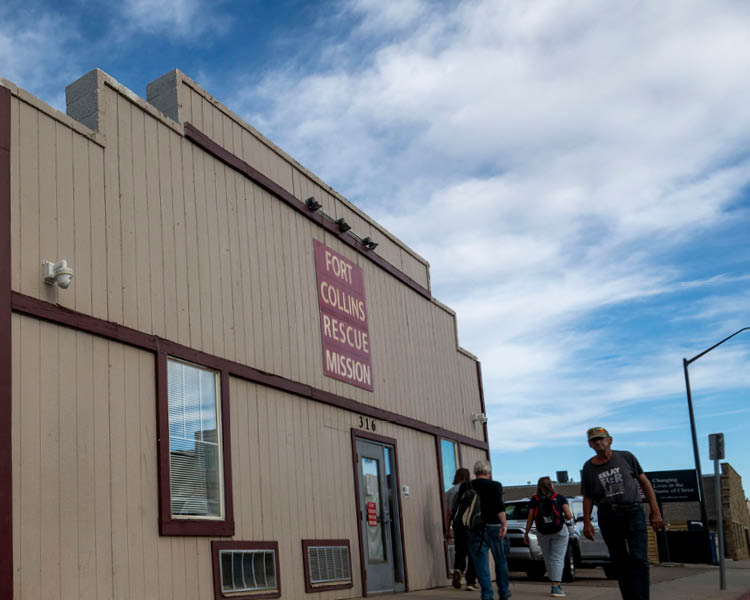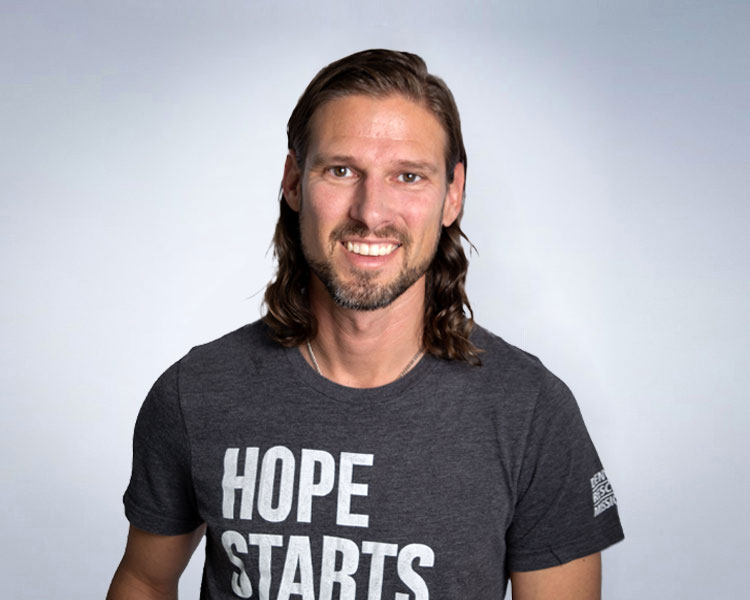Recently, I’ve been filling in for the Harvest Farm Kitchen Supervisor who has been out of the office with an illness. I am not known for my culinary excellence, so these past few weeks have been an interesting experience for me, especially in terms of time management—I still have my regular job to do. On the flip side, however, despite the challenges of running a full-service kitchen for an extended period of time, I’ve had the great pleasure of working more closely with the participants who work in our kitchen, learning more about their stories, working with them as they prepare 3 meals a day for 72 participants. I also get to rub shoulders with some of our amazing volunteers, many of whom I’m embarrassed to admit I’ve never met before.
Heather is one of these volunteers. I had seen her before in our kitchen but never took the time to say hello, to introduce myself, using that all-too-common, but horribly lame excuse of not having enough time. Someone else can say hello to her. She’ll forget my name anyway, and I’ll forget hers. I’m too busy. What’s the point?
Ah, stupidity…
But now that I’m the temporary Kitchen Supervisor, I had no choice but to meet her. There she was, cutting vegetables and laughing with the rest of the kitchen crew, obviously enjoying herself, and the guys obviously enjoying her help, her mere presence. And then here I come, running ragged old Rhoda, working on my third cup of coffee in an hour, wondering how we’re get through the day and serve three creative, healthy meals for a demanding room of program participants who have been busting their butts all day. When I vocalize my concern to my kitchen crew, which now includes our volunteer Heather, she looks up from slicing bell peppers and says this: “We’re good.” Nods her head at me, smiles. “We’ve got it.” The guys near her, washing dishes, prepping some beef, putting together a salad, all nod in casual agreement. I begin to wonder what I’m fussing about.

Later that day, after lunch is served (burgers—made with beef reared and raised by guys in the agriculture department) and we get to catch our breath, I sit down with Heather and thank her for her help. It turns out that she comes to the Farm every Tuesday and Wednesday for a few hours to help out with lunch and whatever else we might need. When I ask her why she chose to volunteer here at the Farm, her face gets slightly more serious and pensive. She tells me that she used to be friends with a young man named Ben who years ago spent some time here at Harvest Farm. He left the program early, but did very well for quite a while, making good and true friends along the way, using his skills and talents to enhance the lives of everyone he met. Heather was one of those people whose life was enhanced by knowing Ben. Then, sadly, for no discernable reason (the calling card of addiction), Ben chose to use again, after a long and successful stretch of sobriety. Heroin, his old drug of choice, the reason why he came to the Farm in the first place all those years ago. He overdosed, and now he’s dead. There’s no other way to say it; there’s nothing delicate or romantic about it.
But now listen to this: Instead of sinking into her sorrow, instead of being pulled under by the tragedy of Ben’s passing, Heather chose to act. Or, perhaps more accurately, she chose to react against despair, against hopelessness, against the now empty space that used to be occupied by Ben. After his passing, she learned that Ben had once been a participant of Harvest Farm, and she learned how much this place and these people meant to him. She decided that in order to honor Ben and his memory, she wanted to give back to the place that gave life back to Ben, her friend. She chose to serve, in a kitchen at a farm for recovering addicts of all places, and has taken courage instead of forfeiting to passivity.
When she finishes telling me this story of why she is giving her time to the kitchen at Harvest Farm, my jaw has officially dropped and I’ve knocked back two more cups of coffee. What an example to follow. Not only for the men in our program, who faced countless tragedies in their own lives, but for all of us. For me. Because this is what we’re around for, isn’t it? To help each other out, to give of what we can when we can? To create antidotes for despair? Tomorrow is not guaranteed to any of us, whether we’re drug addicts, doctors, pastors, or temporary Kitchen Supervisors.
And just like that, Heather’s story still fresh in my ears, I realize that I don’t have to run the entire kitchen by myself. Why? Because I have people around me who will do it with me, with gratitude, with a smile, and with a hope that death might not be the end of something but rather a beginning of something. What a concept. Thanks Heather.







